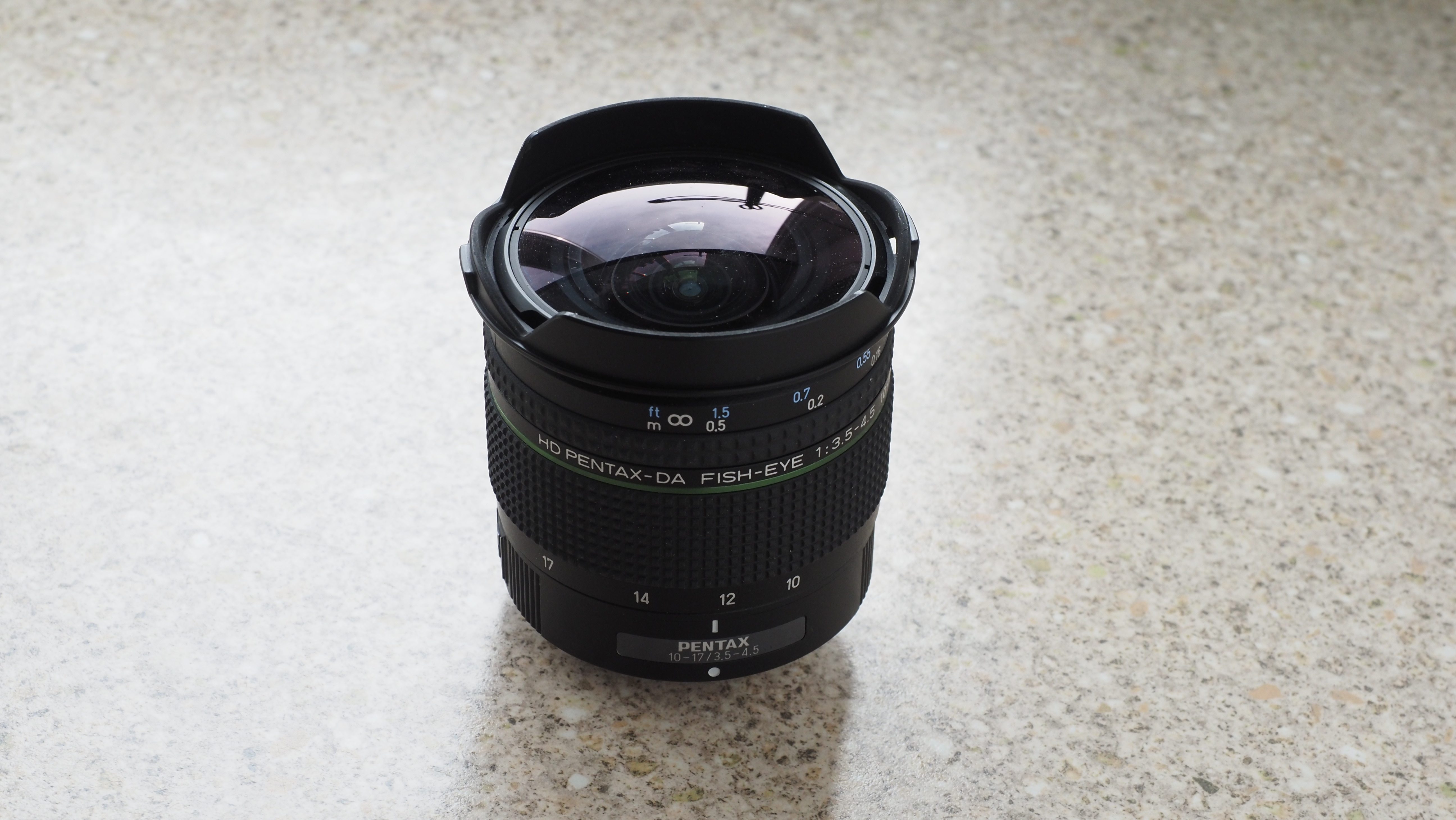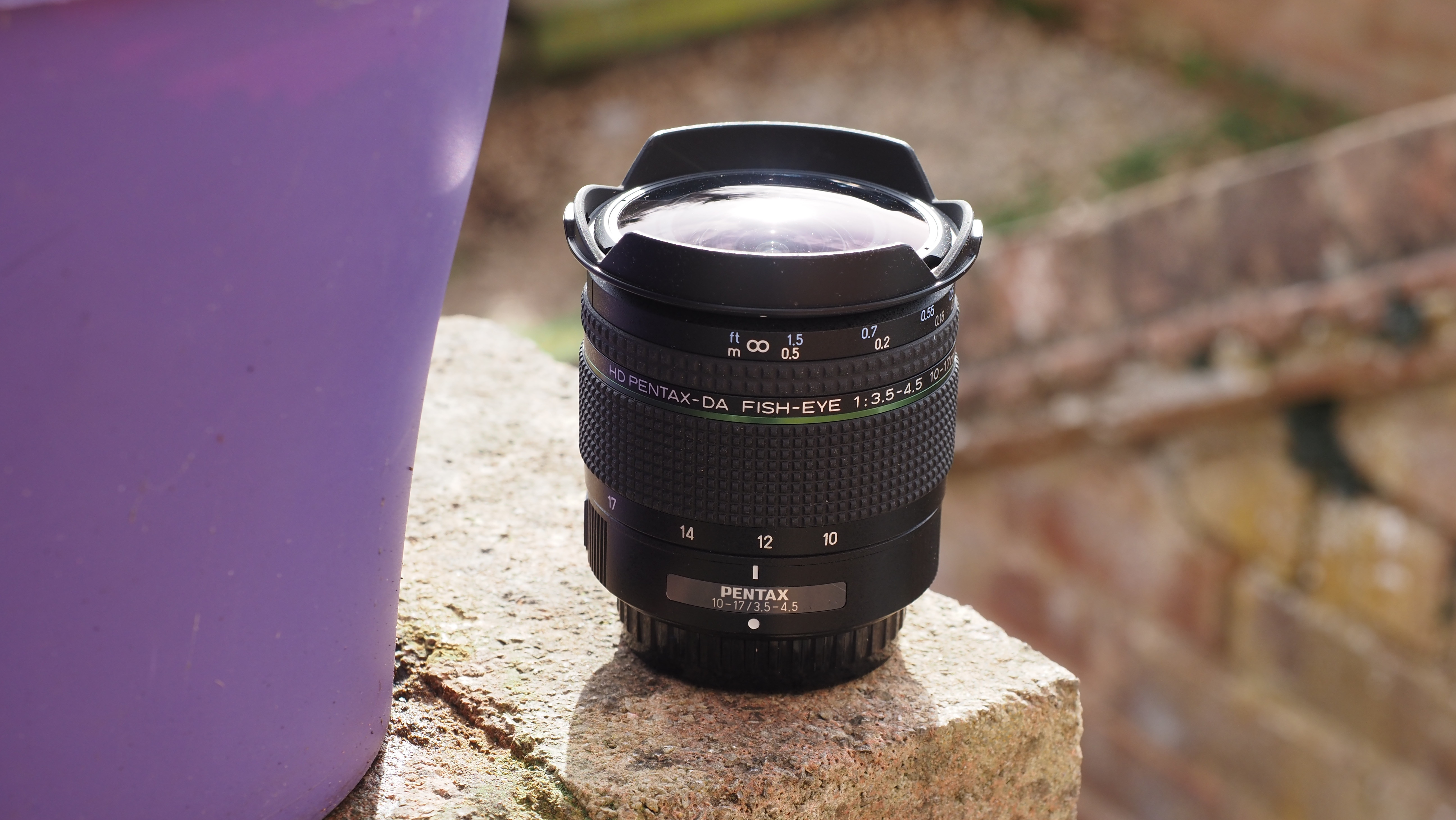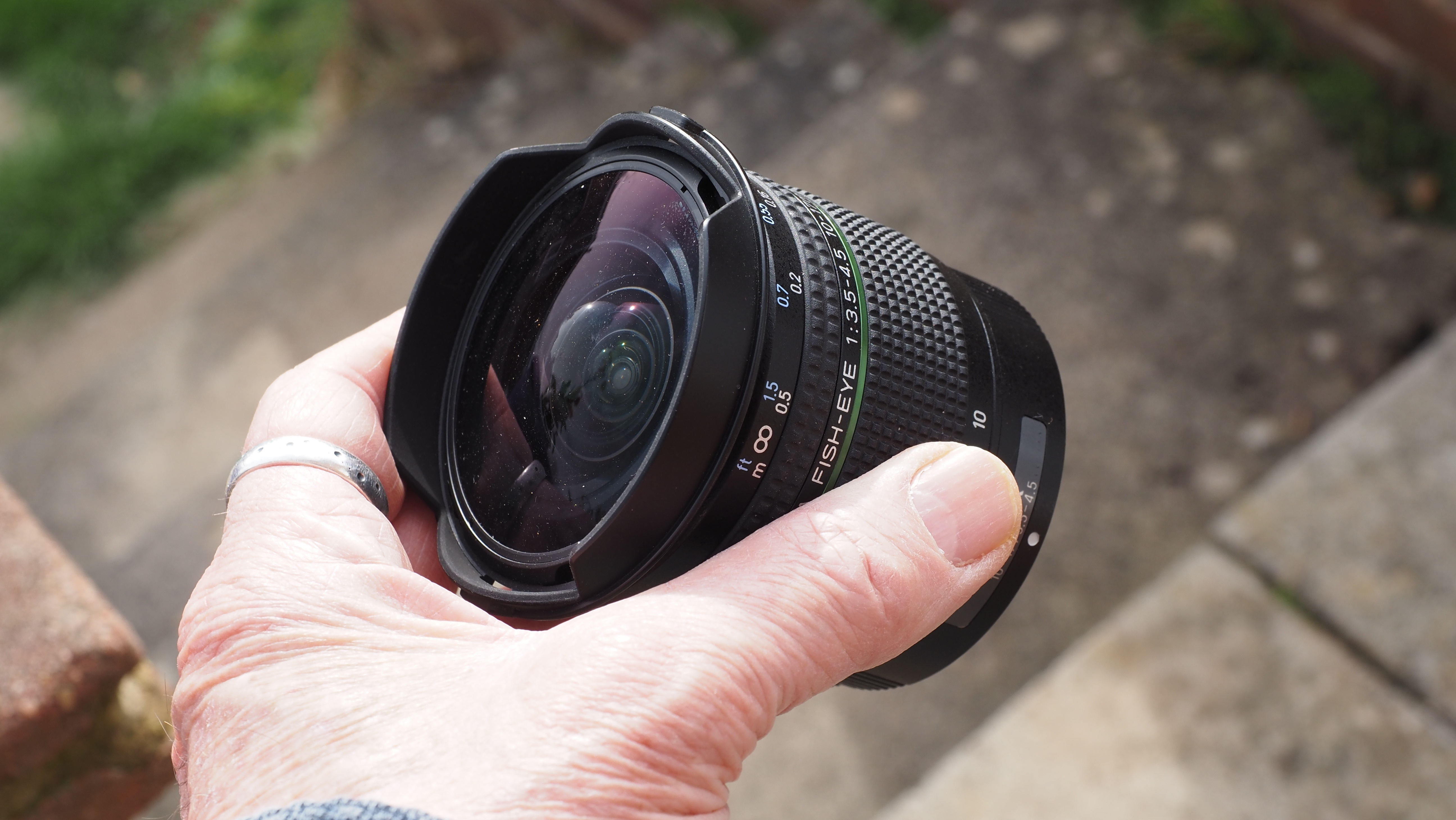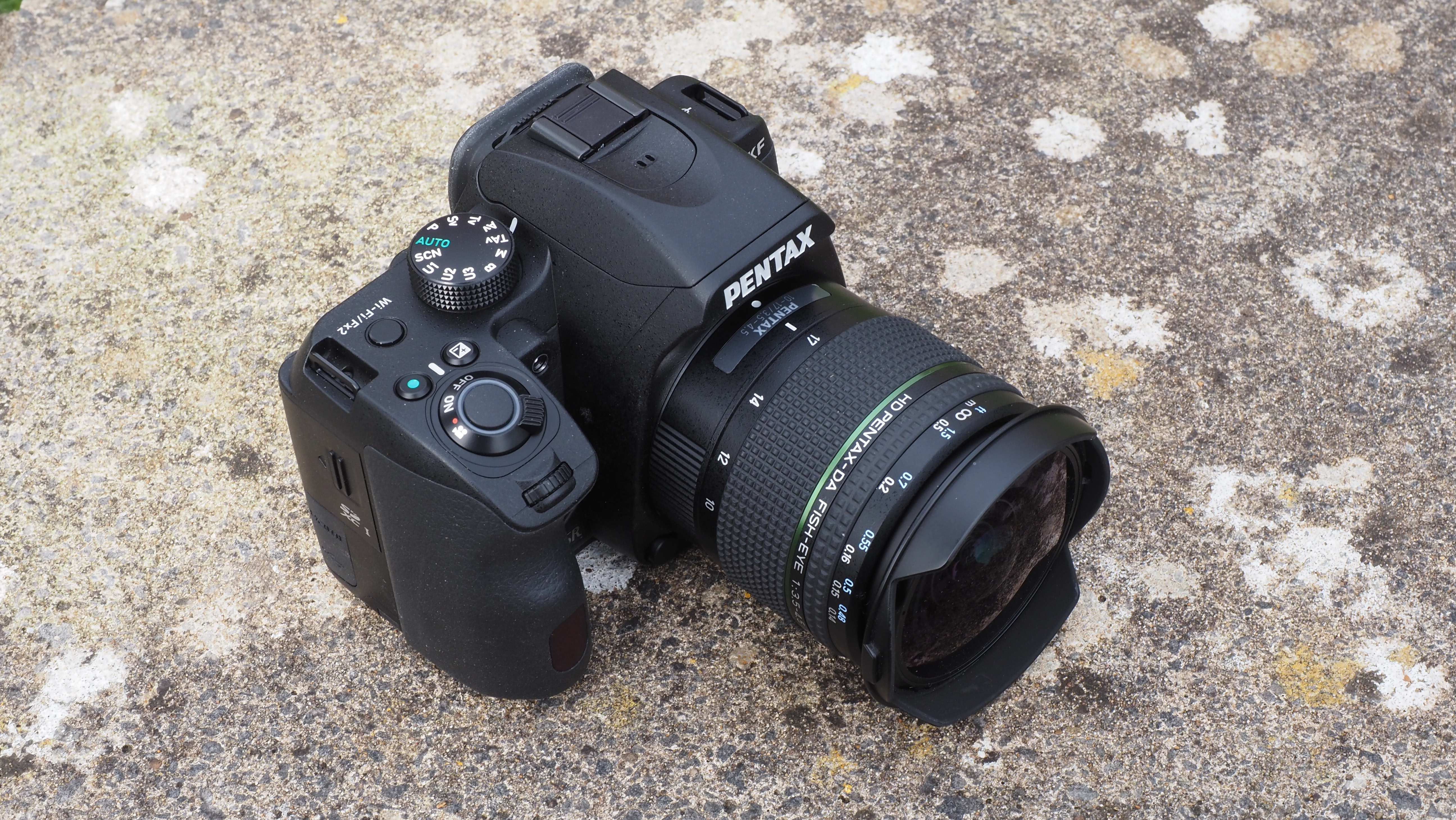
Fisheye lenses are quite specialized optics and not to everyone’s taste. Their strong curvilinear distortion has a certain creative appeal and may offer some technical applications such as measuring cloud cover or astrophotography, but they’re probably not a lens type you would use every day – especially a fisheye zoom.
The other example that comes to mind is the Nikon 8-15mm fisheye zoom for F-mount DSLRs, but that swaps from a circular view to a full frame capture at opposite ends of the zoom range.
The HD Pentax-DA Fisheye 10-17mm F3.5-4.5 ED, however, captures a full frame image at both ends of the zoom range. At 10mm it covers an impressive 180 degrees diagonally, while at 17mm it’s a much less extreme 100 degrees.
Pentax does say that you can remove the lens hood and get a near-circular image on a full frame camera (the Pentax K-1 or K-1 Mark II), but essentially this is an APS-C lens for smaller format cameras like the new Pentax KF.
You can find out more about the Pentax DSLR system with our guides to the best Pentax cameras and best Pentax lenses.
Specifications
Mount: Pentax KAF
Full frame: Yes/No
Autofocus: Camera body
Stabilization: No
Lens construction: 10 elements in 8 groups
Angle of view: 180-100°
Diaphragm blades: 9, rounded
Maximum aperture: f/3.5-4.5
Minimum aperture: f/22-32
Minimum focusing distance: 0.14m
Maximum magnification ratio: 0.39x
Filter size: N/A
Dimensions: 67.5 x 70mm
Weight: 323g
Key features

The focal length range might sound similar to conventional rectilinear ultra-wide zooms for APS-C cameras, but with fisheyes the normal relationship between focal length and angle of view breaks down, and the key factor is the angle of coverage. At 180 degrees at the ‘wide’ and (and that really is very wide), this Pentax lens goes wider than any rectilinear equivalent.
This does mean the front element is very bulbous and the dedicated lens hood so shallow that you might scarcely notice it’s there. It also means you can’t fit filters, but then that’s common to a lot of ultra-wide lenses.
The maximum aperture of f/3.5-4.5 may be a factor when shooting in dark interiors, but it’s not going to affect depth of field, which is going to be huge at practically any aperture, unless you get very, very close to a foreground subject.
Build and handling

The HD Pentax-DA Fisheye 10-17mm F3.5-4.5 ED is quite a nice lens to use, except with autofocus. The zoom action is smooth, and there’s a quality feel to this lens and how it handles.
However, the autofocus is driven by the camera body – the lens has no AF motor of its own – so as usual with body-driven Pentax lenses, the autofocus is noisy, choppy, and hesitant. When it focuses it seems to do it pretty accurately, but the responsiveness and finesse are a million miles from any modern rival, whether it’s a DSLR or a mirrorless camera. Pentax fans must be a pretty forgiving bunch.
There is a manual focus ring, but the distance scale is short with little precision and, because it’s a zoom, there is no depth of field markings for quick zone focusing or hyperfocal distance settings.
Performance




You wouldn't expect pin-sharp optical quality across the frame from a fisheye lens, and this one does show some softening and color fringing at the edges, but then these lenses are designed for their creative impact, not pixel peeping – and this one does perform pretty well. The 10-17mm zoom range is fairly modest, and probably most useful for compositional control.
The autofocus is quite noisy and choppy, as usual for Pentax's body-driven AF (this lens does not have an AF motor of its own), but it's not a big drawback since fisheye lenses are typically used in a slow and considered way anyway, and you can always use manual focus instead and exploit the huge depth of field at these short focal lengths.
The HD Pentax-DA Fisheye 10-17mm F3.5-4.5 ED does produce remarkably even illumination across the frame, which is great for both indoor and outdoor shots. Our outdoor samples do show strong purple fringing at the edges of the frame, however, which has not been fully corrected in-camera.
Verdict

Do you actually need a fisheye zoom? The Nikon equivalent of this lens makes sense in that it offers either a circular or a full frame fisheye effect depending on the zoom setting, but the Pentax lens delivers a full frame image at both 10mm and 17mm – on APS-C Pentax bodies at least. The zoom function does, however, offer some perspective and compositional choices, which could be useful for interiors.
Optically, this lens is adequate rather than good. No one expects flawless edge-to-edge sharpness from a fisheye, though, and you do get good center sharpness and remarkably even illumination across the frame.
Read more: You can find out more about the Pentax DSLR system with our guides to the best Pentax cameras and best Pentax lenses.







